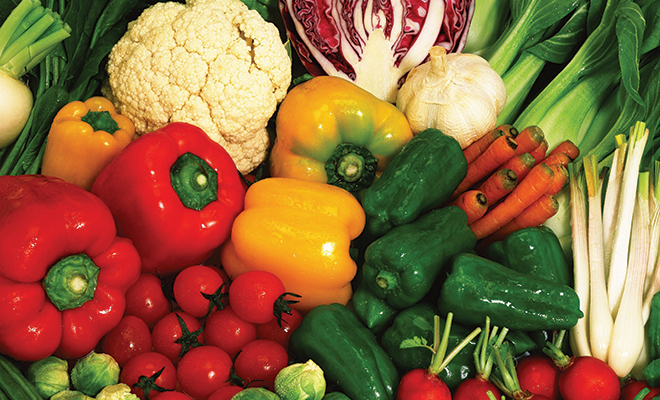
Superfoods and Your Immune System
Summertime’s upon us! Summer may seem far too short. If you love having four distinct seasons, it’s very satisfying to put away heavy coats and boots when spring finally brings warmer weather.
With more hours of daylight, people connect more with the great outdoors. Perhaps you’re playing outdoor sports, biking or hiking. If vacation plans take you to a new locale, you may be exploring mountains, deserts or the seashore. Even a staycation at home takes you outdoors to grill, garden or lie in a hammock on a lazy afternoon.
This connection to nature is evident in grocery stores and farmers’ markets. Fruits and vegetables in season mean that more whole foods are available. Whole foods don’t have an ingredient label. What you hold in your hand is the label—carrot, tomato, egg, lamb chop. Nothing is added to extend shelf life or improve flavor, and nothing has been removed. Mother Nature’s summer bounty is handing us the perfect prescription for good health: eat whole foods, get exercise, and enjoy fresh air and sunshine.
One of the healthiest things about summer is that we gravitate to food that has high water content. Think grapes, salad greens, stone fruits, tomatoes, watermelon. Your body’s water content is at least 50 percent; water is a huge boost to your body’s largest organ, your skin. It helps every other system in your body as well. Water helps move nutrients through your system and aids in moving waste out of your bloodstream. It also helps keeps your joints lubricated and reduces inflammation. Even if you drink eight glasses of water a day, you may need to drink more if you consume caffeinated drinks, alcohol or have a diet high in sodium. Before you reach for a can of soda in the heat of summer, remember that drinking five 100-calorie sodas per day could make you gain 1 pound in a week.
If you hate drinking water, look for low-sodium sparkling water and add a splash of fruit juice to it for flavor. Look for whole foods with a high water content. Add vegetables such as broccoli, cabbage, carrots, cauliflower, eggplant, green peas, peppers, salad greens and spinach to your shopping list. These hydrating foods have a water content ranging from 87 to 91 percent.
Even as summer begins, remember, winter is coming. It will soon be time to calendar appointments for car maintenance, a furnace tune-up, or lawn sprinkler service to prepare for the season ahead. We all know that when school starts up in a few months, children will be exposed to germs and viruses that cause illness. They will in turn spread this to parents, friends and family, exposing everyone in the workplace and community.
All the changes of season are nothing to fear; after all, exposure to illness helps our bodies build up immunity. But if you want to stay as healthy as possible, or if your immune system is weak or compromised, think about what you can do now to optimize your health. After all, doesn’t your body deserve to be winterized as much as your car or furnace?
You can support your body’s natural defenses year-round by using herbs and spices to their best advantage. Look at the classic quartet of parsley, sage, rosemary and thyme. Parsley is loaded with protein and vitamins and helps maintain the microbiome of your gut, which governs your immune system. Sage has antioxidant and anti-inflammatory properties. Rosemary is also an antioxidant and has anti-bacterial, anti-inflammatory, anti-fungal and antiseptic properties. Thyme has antibacterial and anti-fungal properties; it’s one of the essential oils used in Listerine® mouthwash.
the world of spices, perhaps none is more beneficial than turmeric. That’s the spice that gives curry its golden flavor and its heat. It’s been used as medicine for centuries; studies show that its bioactive compounds have a multitude of health benefits that are almost too good to be true. You can use it as a spice with food or tea or add fresh turmeric root to dishes. But too much turmeric, or its active ingredient curcumin, can have adverse effects. Talk to your doctor before consuming large quantities of turmeric or curcumin or using supplements.
Last but not least, mushrooms that add flavor to meals also have health benefits. They’re low in calories but packed with vitamins and nutrients. Your grocery probably has mushrooms such as button, oyster, shiitake and cremini. For an added boost, look for specialty stores that carry reishi, chaga, lion’s mane, cordyceps and turkey tail mushrooms. Reishi has properties that regulate hormones and lower cortisol levels; chaga helps fight inflammation. Cordyceps aids adrenal function, boosting energy.
It’s said that you are what you eat. Follow the advice Hippocrates gave; let food be your medicine, and a healthy diet will help you look and feel better in any season. ■
Sources: distillata.com, healthyeating.sfgate.com and prevention.com.







